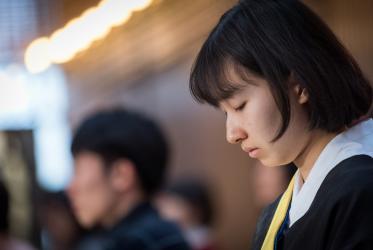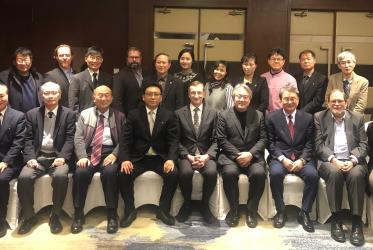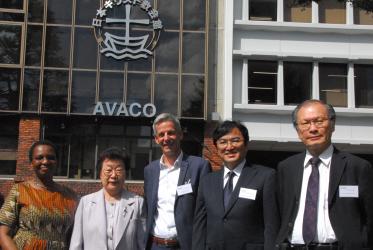Displaying 121 - 140 of 335
27 February 2020
CCIA meets in Brisbane with focus on Pacific regional priorities
19 February 2020
Worldwide prayer campaign begins to end 70-year Korean War
06 February 2020
Religious leaders keep vision of peace alive on Korean Peninsula
10 December 2019
WCC delegation meets with Korean prime minister
19 November 2019
Tveit: “Love is about the future: Where are we going from here?”
17 November 2019
WCC well-represented in Religions for Peace leadership
07 October 2019
WCC gravely concerned for West Papua
25 September 2019
In Japan, theologians reflect on today’s global manifestations of racism
18 September 2019
WCC organises event on “The Human Rights Situation in the Philippines”
18 September 2019
Dr Saïd Ailabouni: God is on the side of rejected, oppressed, occupied
12 September 2019
WCC pressing ahead with disarmament work
28 August 2019







